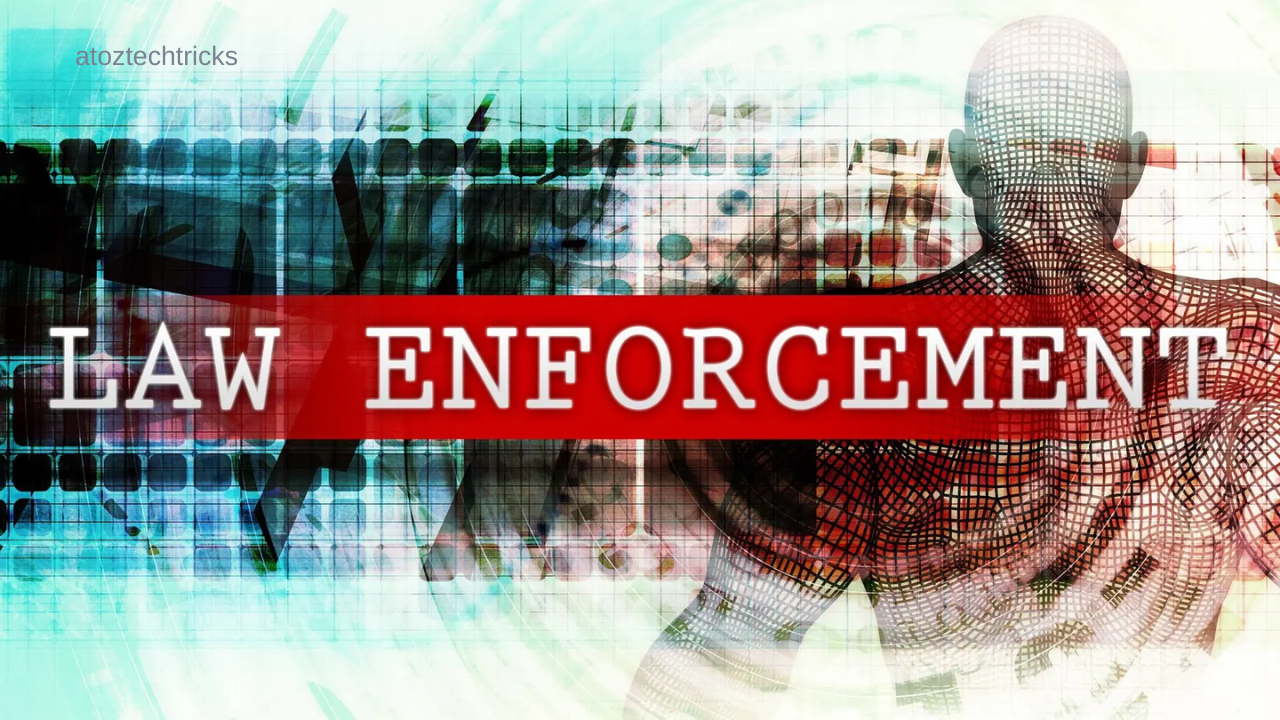Law Enforcement Careers: Opportunities, Challenges, and Pathways
Law enforcement careers play a pivotal role in maintaining public safety, upholding justice, and ensuring the rule of law. From patrolling neighbourhoods to conducting complex investigations, law enforcement professionals are at the forefront of safeguarding communities. This comprehensive guide will delve into the various aspects of law enforcement careers, including the types of roles available, the skills and education required, the challenges faced, and the career progression opportunities.
Introduction to Law Enforcement Careers
Law enforcement careers are essential for maintaining societal order and ensuring justice. These careers are diverse, ranging from local police officers to federal agents, and each role has its unique set of responsibilities and challenges. Law enforcement professionals are tasked with investigating crimes, enforcing laws, and maintaining public order. They work in various settings, including urban environments, rural areas, and specialized units dealing with specific types of crime.
Types of Law Enforcement Careers
Police Officers
Police officers are perhaps the most recognizable law enforcement professionals. They are responsible for patrolling neighbourhoods, responding to emergencies, and investigating minor crimes. Police officers serve as the first line of defence against crime and play a crucial role in community policing, which focuses on building positive relationships with the public.

Responsibilities:
- Patrolling assigned areas
- Responding to emergency calls
- Conducting traffic stops and issuing citations
- Investigating minor crimes and incidents
- Writing reports and maintaining records
- Engaging in community outreach and crime prevention initiatives
Work Environment: Police officers typically work in shifts to provide 24/7 coverage. The job can be physically demanding and emotionally challenging, requiring officers to handle a wide range of situations, from routine traffic stops to violent crimes.
Detectives and Investigators
Detectives and investigators specialize in solving complex crimes. They gather evidence, interview witnesses, and analyze information to solve cases. Detectives often work on serious crimes such as homicides, sexual assaults, and major thefts.
Responsibilities:
- Conducting thorough investigations of criminal activities
- Collecting and analyzing evidence
- Interviewing witnesses and suspects
- Collaborating with other law enforcement agencies
- Preparing detailed reports and case files
- Testifying in court
Work Environment: Detectives and investigators may work in an office setting, but their job often requires fieldwork, including visiting crime scenes and conducting interviews. Their work can involve long hours and require them to be on call for emergencies.
Federal Agents
Federal agents work for federal agencies such as the FBI, DEA, and ATF. They investigate crimes that fall under federal jurisdiction, including terrorism, drug trafficking, and organized crime. Federal agents often work on high-profile cases and collaborate with other law enforcement agencies.
Responsibilities:
- Investigating federal crimes and violations
- Conducting surveillance and intelligence gathering
- Coordinating with other federal, state, and local agencies
- Enforcing federal laws and regulations
- Preparing detailed reports and case documentation
- Testifying in federal court
Work Environment: Federal agents may be stationed in various locations across the country or internationally. The job can involve significant travel and requires a high level of security clearance. Federal agents often work on complex and sensitive cases, requiring meticulous attention to detail.
Specialized Units
Law enforcement agencies have specialized units that focus on specific types of crime or enforcement. These units include SWAT teams, narcotics units, cybercrime units, and more. Each unit has its own training requirements and operational procedures.
Responsibilities:
- Handling specialized operations and investigations
- Utilizing specialized equipment and techniques
- Responding to high-risk situations
- Collaborating with other units and agencies
- Providing expertise in specific areas of law enforcement
Work Environment: Specialized units often work in high-stress environments, particularly when dealing with dangerous situations or advanced technology. The work can be intense and requires a high level of coordination and skill.
Forensic Specialists
Forensic specialists analyze physical evidence to assist in criminal investigations. They include forensic scientists, crime scene investigators, and forensic pathologists. Their work is crucial in providing evidence that can be used in criminal cases.
Responsibilities:
- Analyzing physical evidence from crime scenes
- Conducting laboratory tests and examinations
- Documenting and preserving evidence
- Providing expert testimony in court
- Collaborating with law enforcement and legal professionals
Work Environment: Forensic specialists typically work in laboratory settings or at crime scenes. Their work requires precision and attention to detail, and they often work closely with other law enforcement professionals to ensure accurate and timely evidence analysis.
Educational and Training Requirements
Educational Background
Most law enforcement careers require a high school diploma or GED. However, many positions, especially those at the federal level or in specialized units, may require a bachelor’s degree or higher in criminal justice, criminology, or a related field.
Degrees and Certifications:
- Associate’s Degree: Some positions may accept an associate’s degree in criminal justice or a related field.
- Bachelor’s Degree: A bachelor’s degree is often required for more advanced positions, including detectives and federal agents.
- Master’s Degree: For higher-level positions or specialized fields, a master’s degree in criminal justice or forensic science may be advantageous.
Police Academy Training
Police academy training is a fundamental component of becoming a police officer. The academy provides candidates with the necessary skills and knowledge to perform their duties effectively.
Training Includes:
- Physical Training: Officers undergo rigorous physical conditioning to ensure they are fit for duty.
- Legal Training: Candidates learn about laws, regulations, and procedures relevant to law enforcement.
- Tactical Training: Training includes defensive tactics, firearms proficiency, and emergency response.
- Community Policing: Emphasis is placed on building relationships with the community and understanding diverse populations.
Specialized Training
For roles in specialized units or federal agencies, additional training is often required. This may include advanced courses in criminal investigation techniques, counter-terrorism, or cybercrime.
Examples of Specialized Training:
- SWAT Training: Focuses on high-risk operations and tactical responses.
- Cybercrime Training: Involves learning about digital forensics and cybersecurity.
- Forensic Training: Provides skills in evidence analysis and crime scene management.
Skills and Qualities for Success
Communication Skills
Effective communication is essential in law enforcement. Officers must be able to convey information, listen to others, and de-escalate potentially volatile situations. Good communication skills are also crucial when interacting with the public and working with other professionals.
Problem-Solving Abilities
Law enforcement professionals frequently encounter complex and unpredictable situations. Strong problem-solving skills are necessary to assess situations, make quick decisions, and resolve issues effectively. Detectives and investigators, in particular, need to think critically and analytically to solve cases.
Physical Fitness
Law enforcement work can be physically demanding, requiring officers to be in good shape. Physical fitness is crucial for performing tasks such as pursuing suspects, handling emergencies, and maintaining stamina during long shifts.
Ethics and Integrity
Integrity and ethical behaviour are fundamental to law enforcement. Officers must adhere to high moral standards, act impartially, and uphold the law without bias. Trust and credibility with the public are built on a foundation of honesty and ethical conduct.
Challenges in Law Enforcement Careers
Stress and Mental Health
Law enforcement careers can be highly stressful due to the nature of the work, long hours, and exposure to traumatic events. Officers may face mental health challenges such as anxiety, depression, and post-traumatic stress disorder (PTSD). Law enforcement agencies need to provide support and resources for mental health and well-being.
Public Scrutiny
Law enforcement professionals often work under intense public scrutiny. Their actions and decisions are subject to review and criticism, which can affect their morale and job satisfaction. Building positive relationships with the community and maintaining transparency can help mitigate some of these challenges.
Work-Life Balance
The demanding nature of law enforcement work can impact personal life and relationships. Officers may work irregular hours, including nights, weekends, and holidays. Balancing work responsibilities with family and personal time requires effective time management and support from both the agency and loved ones.
Career Progression and Advancement
Promotional Opportunities
Law enforcement careers offer various promotional opportunities. Officers can advance to higher ranks such as sergeant, lieutenant, captain, and chief. Each promotion typically requires additional experience, training, and demonstrated leadership abilities.

Examples of Career Progression:
- Sergeant: Oversees a team of officers and provides guidance and support.
- Lieutenant: Manages multiple units or divisions and coordinates operations.
- Captain: Responsible for overall department operations and strategy.
- Chief: Leads the entire law enforcement agency and represents it to the public and government officials.
Specialization
Specializing in a particular area of law enforcement can provide additional career opportunities and job satisfaction. Specialized roles may include cybercrime investigator, hostage negotiator, or K-9 unit handler. Specialization often requires additional training and expertise.
Continued Education and Training
Ongoing education and training are essential for career advancement in law enforcement. Officers may pursue advanced degrees, attend specialized training courses, or obtain certifications to stay current with evolving practices and technologies. Continued education helps professionals develop new skills and advance their careers.
Law enforcement careers offer diverse opportunities for those committed to serving and protecting their communities. From patrolling neighbourhoods to investigating complex crimes, law enforcement professionals play a crucial role in maintaining public safety and upholding justice. While the career comes with its share of challenges, including stress and public scrutiny, it also offers numerous rewards, including career advancement, specialization, and the opportunity to make a positive impact on society.
Paralegal Career and Excel in the Legal Field | Guide and Resources
Pursuing a career in law enforcement requires dedication, education, and a strong sense of ethics. By understanding the various roles, educational requirements, and challenges associated with law enforcement careers, individuals can make informed decisions and prepare for a fulfilling and impactful profession.





Post Comment